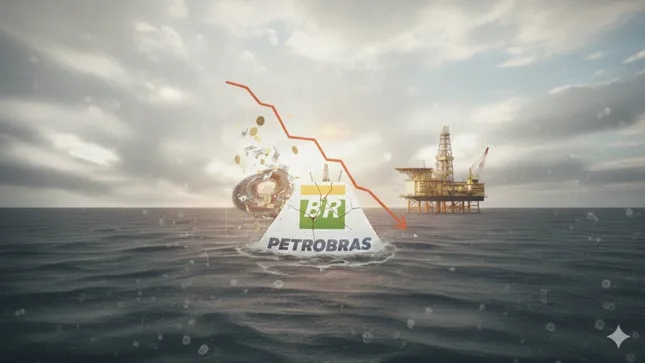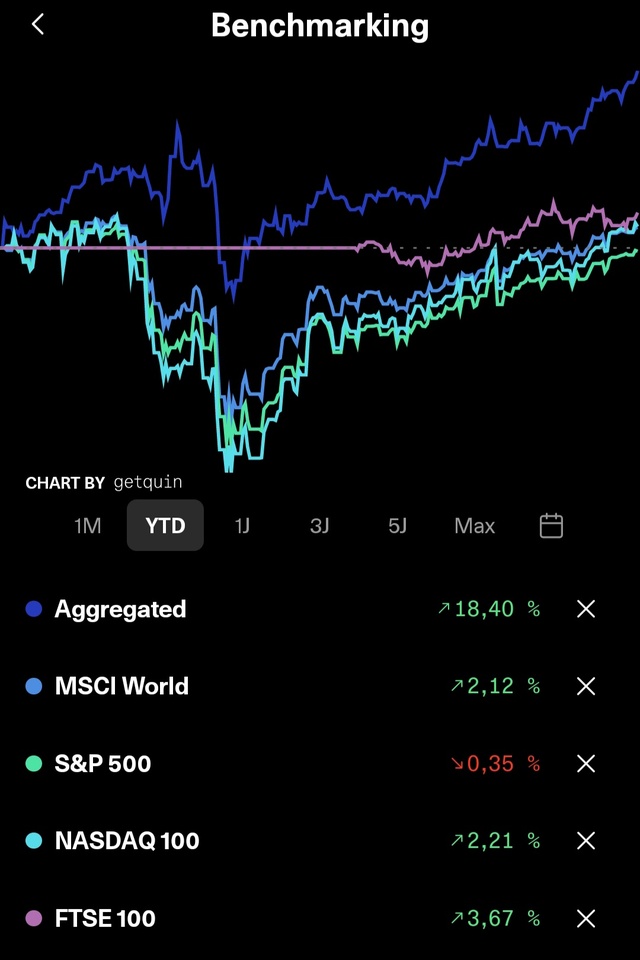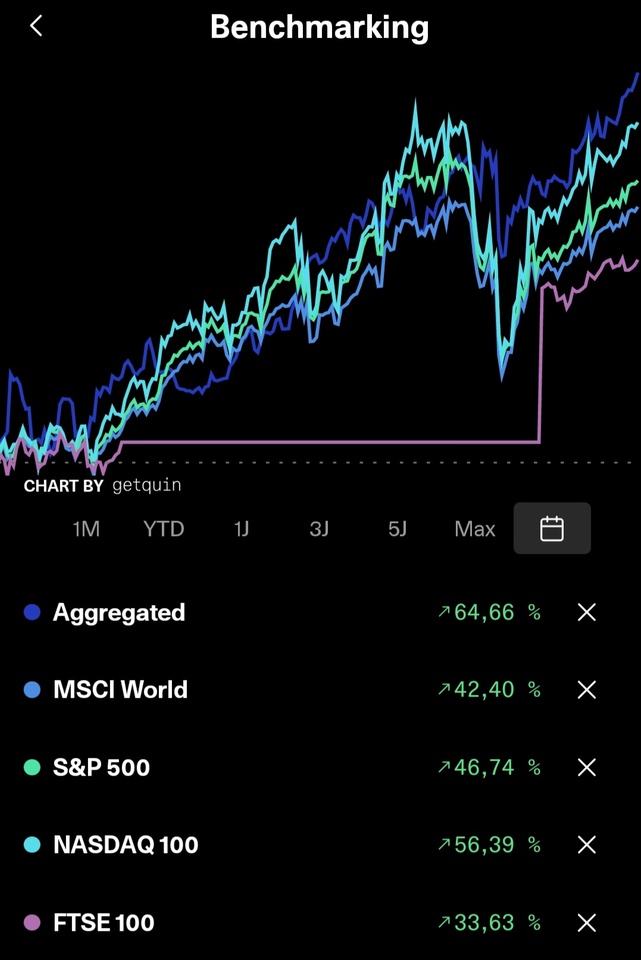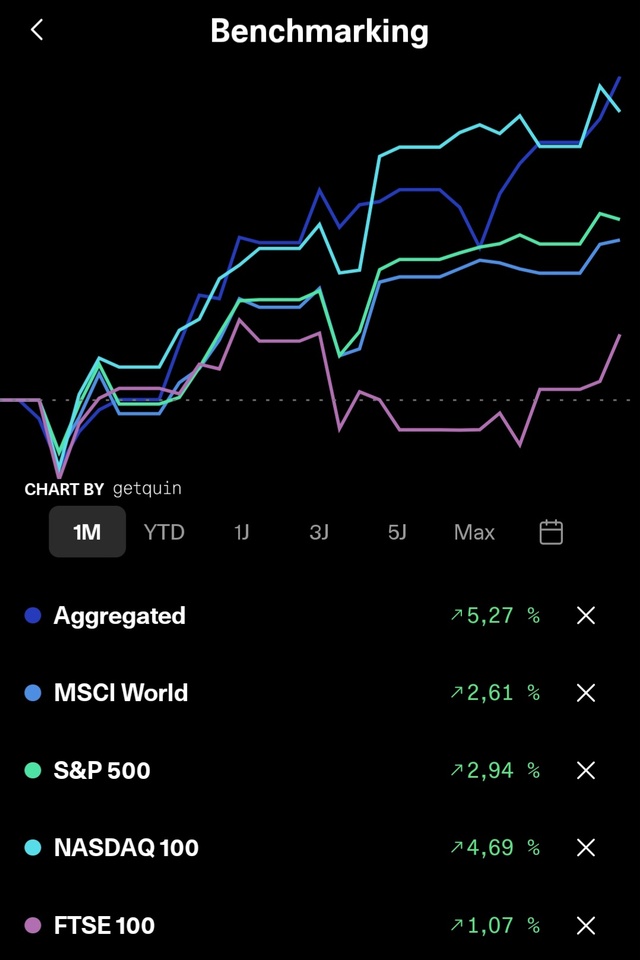Somewhat belatedly, here is my review of January 2026.
📈 Performance:
S&P500: -0.47%
MSCI World: +0.16%
DAX: +0.20%
Dividend portfolio: +2.32%
My high and low performers in January were (top/flop 3):
🟢 ($LMT (-1.36%) ) Lockheed Martin +27.54%
🟢 ($TXN (+0.98%) ) Texas Instruments +20.94%
🟢 ($PETR4 (+1.44%) ) Petroleo Brasileiro +20.07%
🔴 ($RACE (-0.43%) ) Ferrari -12.36%
🔴 ($UNH (-0.11%) ) United Health -14.31%
🔴 ($MC (+4.98%) ) LVMH -15.11%
Dividends:
January 2025: €51.82
January 2024: € 59.75
Change: -13.27%
Sales:
🟥 None
Purchases:
🟩 None
Savings plans:
($CTAS (+1.28%) ) Cintas (50€)
($MC (+4.98%) ) LVMH (50€)
($MSFT (-0.3%) ) Microsoft (25€)
What else has happened?
January was largely quiet, apart from the normal stock market fluctuations.
Until the middle of the month, things were going pretty well upwards, but from then on things went down again. Overall, however, as you can see above under Performance, I am quite satisfied with January. Especially when you consider that the continued weakness of the dollar is putting pressure on dividends. They are even down slightly compared to January 2024.
I am still building up my nest egg again. However, a notary bill in January is putting a massive brake on this again. Nevertheless, I hope that I will be able to complete this task in April and then finally be able to invest fully again. I therefore didn't make any purchases in January (apart from the savings plans).
As a side note, it should be mentioned here again that the pension portfolio is still running unchanged.
The mini-job limit was raised in 2026 and is now €603. The money will go 1:1 into my pension account, but I will let the increase flow into my nest egg until April. After all, that's another €200 more. Otherwise, it will remain unchanged.
🥅 Goals 2026:
I learned in 2025 that setting short-term goals is useless. Life can get in the way too often. So I'm not going to set myself any goals, I'm just going to write down some kind of idea of what I would/could like things to look like.
Why did I decide to do this? As I said above, life can get in the way and then you can do what you want and not reach your goal. But if everything goes according to plan or even better than expected, why should I stop just because the goal has been reached? There is no reason to do so, the motto is to keep going. So why set a goal? Either I can't achieve it or I will achieve it, but then of course I will carry on and not just stop. However, I still make a rough calculation of what would be possible in a "normal" course of events because it simply motivates me.
That's why I'm trying to reach €85,000 in my dividend portfolio this year. This is to be achieved through dividends, deposits and, of course, share price increases. Let's see what it looks like at the end of the year.
If you liked the report and would like to read more, you are welcome to follow me,
If you're not interested, you can keep scrolling or use the block function.






















